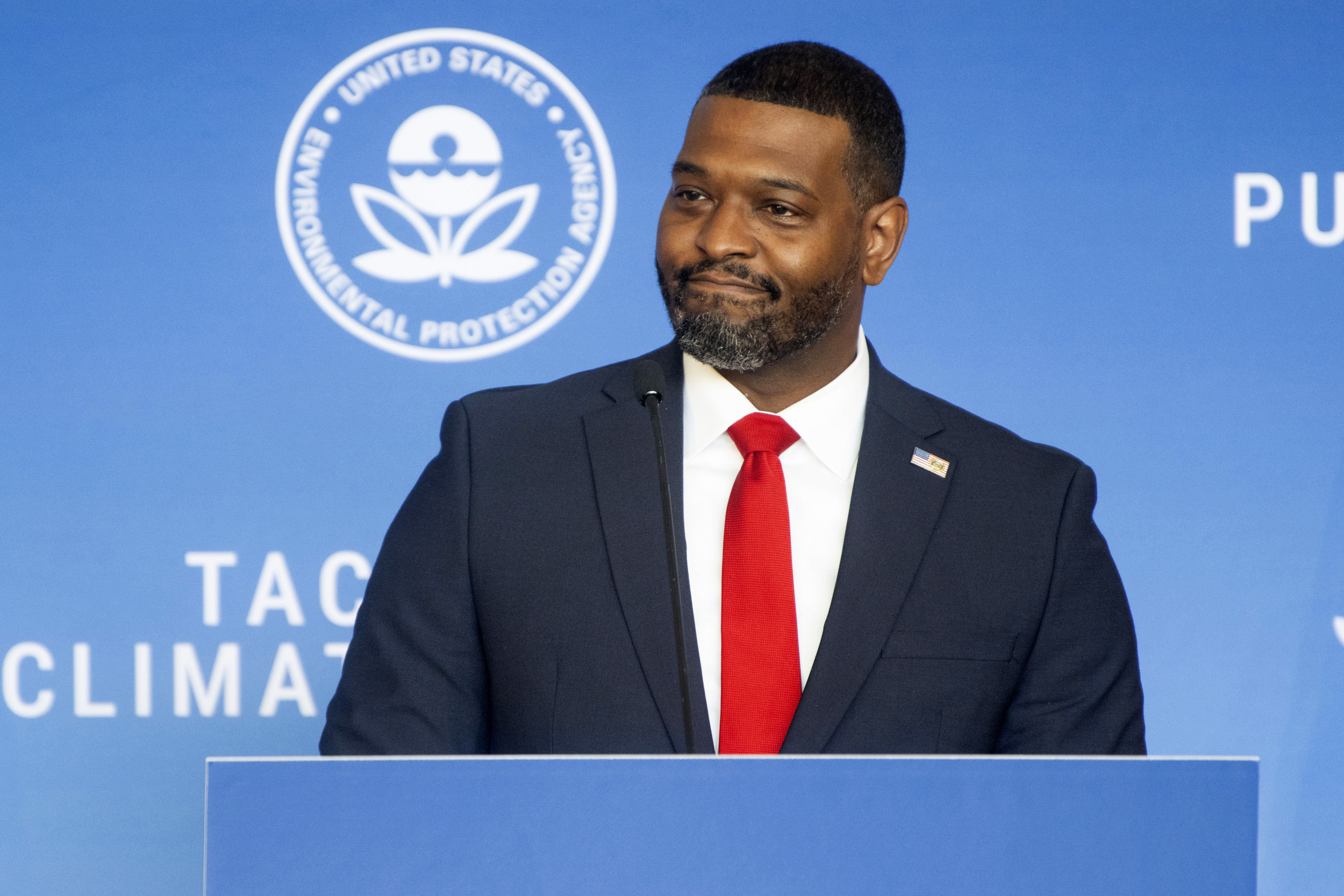One of President-elect Donald Trump's greatest foreign policy achievements was the 2020 signing of the Abraham Accords, in which four Arab states agreed to normalize ties with Israel.
As he returns to office next month, Trump can make good on a campaign promise to expand on this success. He should start by turning his attention to the Caucasus and Central Asia—home to the fabled Silk Road trade routes—to bring in three Muslim-majority, post-Soviet nations that have already proven their commitment to regional peace and tolerance.
Azerbaijan, Kazakhstan and Uzbekistan formed relations with Israel within several months of gaining their independence after the fall of the Soviet Union in 1991. They have remained on good terms ever since, cooperating closely on matters including security, agriculture, and tourism. Caucasian Azerbaijan and Central Asian Kazakhstan and Uzbekistan have maintained these strategic ties over the fraught past year since the Hamas atrocities of Oct. 7, 2023, while also safeguarding the well-being of their own Jewish communities.

Azerbaijan and Kazakhstan, in particular, have become known as Israel's "Best Friends" in the Muslim world—a friendship that has reaped generous dividends, as would future, warmer ties. In Israel, all three nations have found a stable security partner, profitable consumer market and supporter in key concerns such as water management.
Inviting Muslim countries that have already made peace with Israel to join the Abraham Accords might seem strange to those who view the sole purpose of the treaties as incentivizing peace. But the Abraham Accords are more than that—they provide a high-profile forum for cooperation between Israel, the United States and pro-U.S. Muslim nations committed to tolerance and coexistence. Thus, expanding the accords to Central Asia could go a long way to helping Washington establish a larger foothold in the region.
The three Turkic countries reside in a tough neighborhood, sandwiched between China, Russia, and Iran. It's a region that's also vital to U.S. strategic goals.
Central Asia is rich in coveted minerals including uranium, lithium, and tantalum, and holds some of the largest gas reserves in the world. Kazakhstan and Azerbaijan are also rich in oil and key to the Middle Corridor, a trade route connecting China to Europe while bypassing both Russia and Iran.
As Russia wages war in Ukraine and Iran further destabilizes the Middle East, developing the Middle Corridor has indeed become a key objective in U.S. strategy. Yet previous administrations have often failed to appreciate the basic dilemma of smaller powers in this region, particularly their urgent need to play nice with the two global giants informally known as the Bear and the Dragon, while not becoming too dependent on or subservient to them. By understanding and catering to this priority, Washington could skillfully help ease these countries away from the grasp of Beijing, Moscow and Tehran.
Israel could help pull off this feat.
Israel's population includes many emigrants from Central Asia, most of whom arrived after the fall of the Soviet Union. They understand the language, mentality and goals of the places they left, and have already been instrumental in forging unusually close—and lucrative—ties.
Azerbaijan and Kazakhstan supply the Jewish state with 60 percent of its oil imports, while Azerbaijan has been a crucial ally in defense cooperation – Baku is one of the largest importers of Israeli weapons and has coordinated with Israel against the Islamic Republic of Iran. In recent years, Jerusalem has steadily increased trade with Uzbekistan.
Israel's pre-established ties with Central Asia can help the United States make inroads in this increasingly important region, even as Israel itself would benefit from expanding the Abraham Accords. But there's an even larger goal worth pursuing. Opening the Abraham Accords to these new members would help remind the world that there are many Muslim countries who favor tolerance, peace and stability and want nothing to do with the corrosive brand of Islamism that has wrecked economies and devastated communities.
Indeed, majority-Muslim Azerbaijan, Kazakhstan and Uzbekistan are all secular countries that guarantee their citizens the right to practice Islam, Judaism and Christianity. As Kazakhstani President Kassym-Jomart Tokayev said last year, the principle of secularity "should be strictly upheld in all spheres of government."
All three nations have paid a price for their exceptional tolerance. In the past year, Azerbaijani, Kazakhstani, and Uzbekistani security services have thwarted several Islamist-inspired terrorist attacks.
Radical ideology is often a foreign import. According to Eurasia Expert Rafael Sattarov at the Carnegie Endowment for International Peace, the government of Turkey and the Taliban in Afghanistan have been major indoctrinators of the Uzbekistani population. In majority-Shia Azerbaijan, Iran has sponsored a Khomeinist proxy group to carry out terrorist attacks and disseminate Islamist propaganda.
Joining the Abraham Accords is unlikely to endear the Central Asian nations to radical Islamists. But it would connect them with other nations experienced in battling Islamist terrorism throughout the region, who can help form a stronger, more united front.
Both Azerbaijan and Kazakhstan have been increasingly eager to improve relations with the United States through the pro-Israel and Jewish communities. Recently, Azerbaijani President Ilham Aliyev received both the president and president-elect of the American Israeli Public Affairs Committee in an unprecedented meeting to discuss "issues of mutual interest." For years, Kazakhstan has worked with Jewish groups to repeal Cold War-era legislation hampering trade with the United States.
They have a lot to gain. Besides securing access to the world's largest consumer market, these nations will be able to use relations with Washington as a bulwark against the belligerent empires on their borders. The Abraham Accords offers the chance to have Israel, a trusted intermediary, help Washington and the Turkic nations better understand each other's goals.
Trump's pick for national security advisor, Florida Rep. Michael Waltz, has called on the U.S. to further develop the Abraham Accords. Including Azerbaijan, Kazakhstan, and Uzbekistan would be a great first step that could not only strengthen more moderate Muslim nations and Jewish-Islamic ties but help the United States extend its influence in one of the world's most strategic regions.
Joseph Epstein is the director for legislative affairs at the Endowment for Middle East Truth (EMET), a fellow at the Yorktown Institute, and a research fellow at the Begin Sadat Center for Strategic Studies.
The views expressed in this article are the writer's own.




















 English (US) ·
English (US) ·